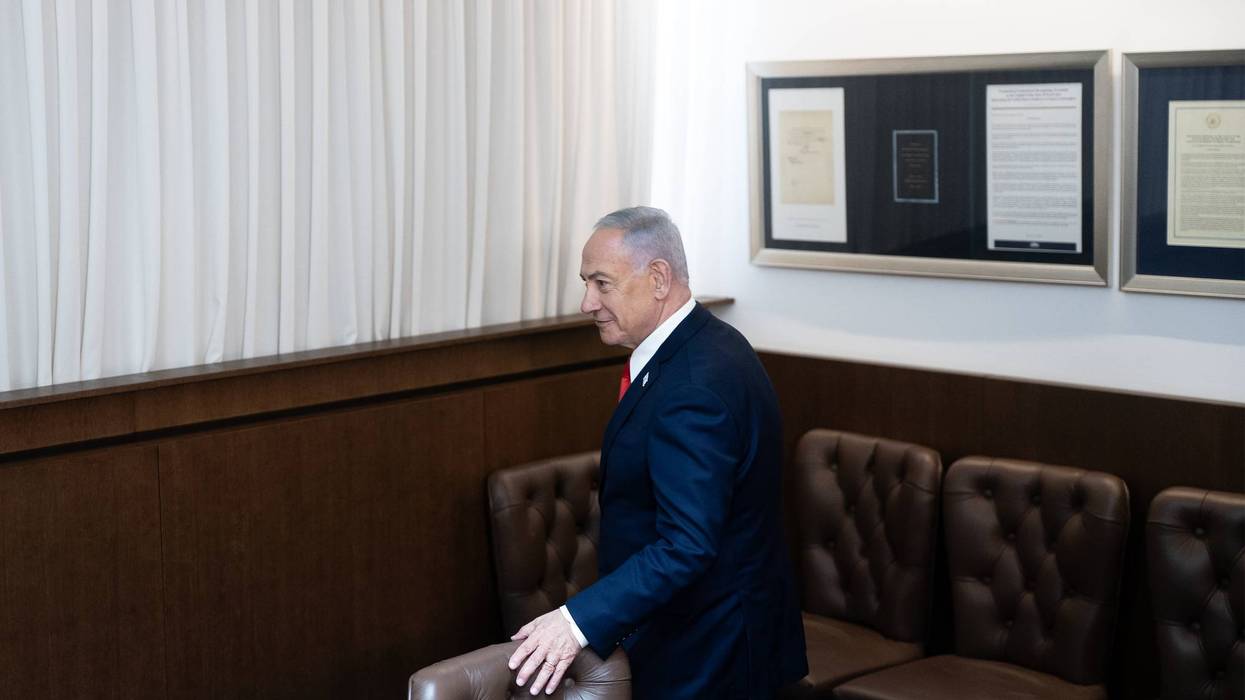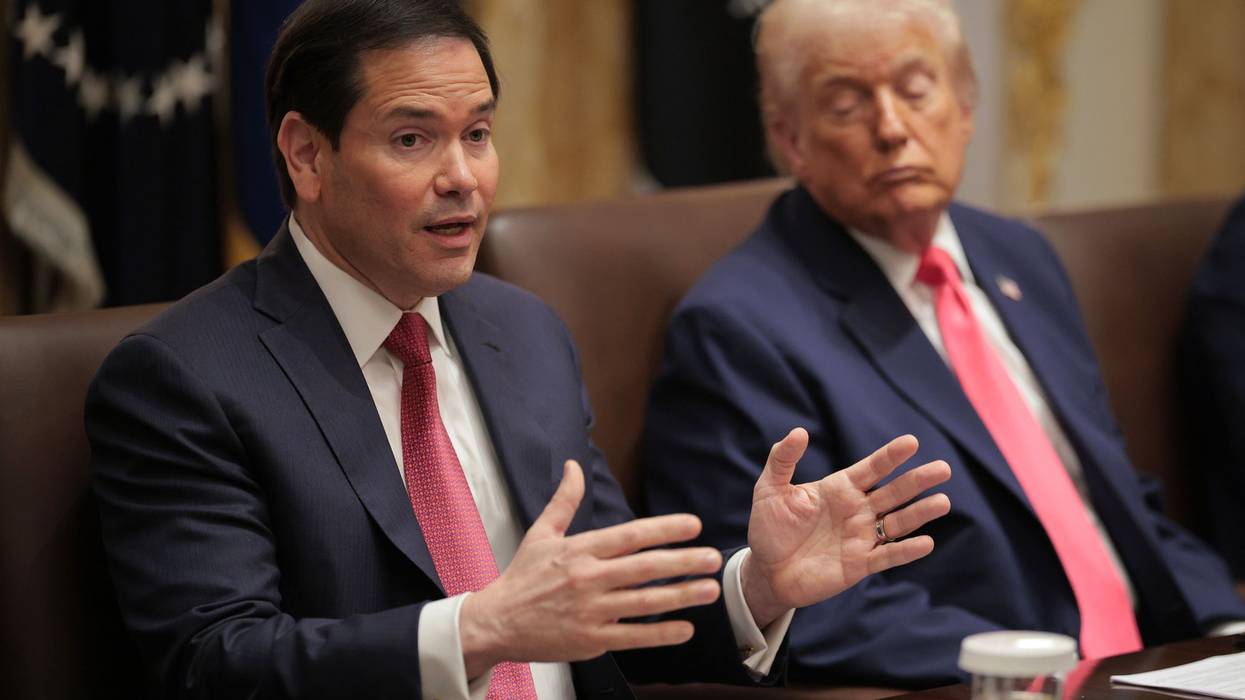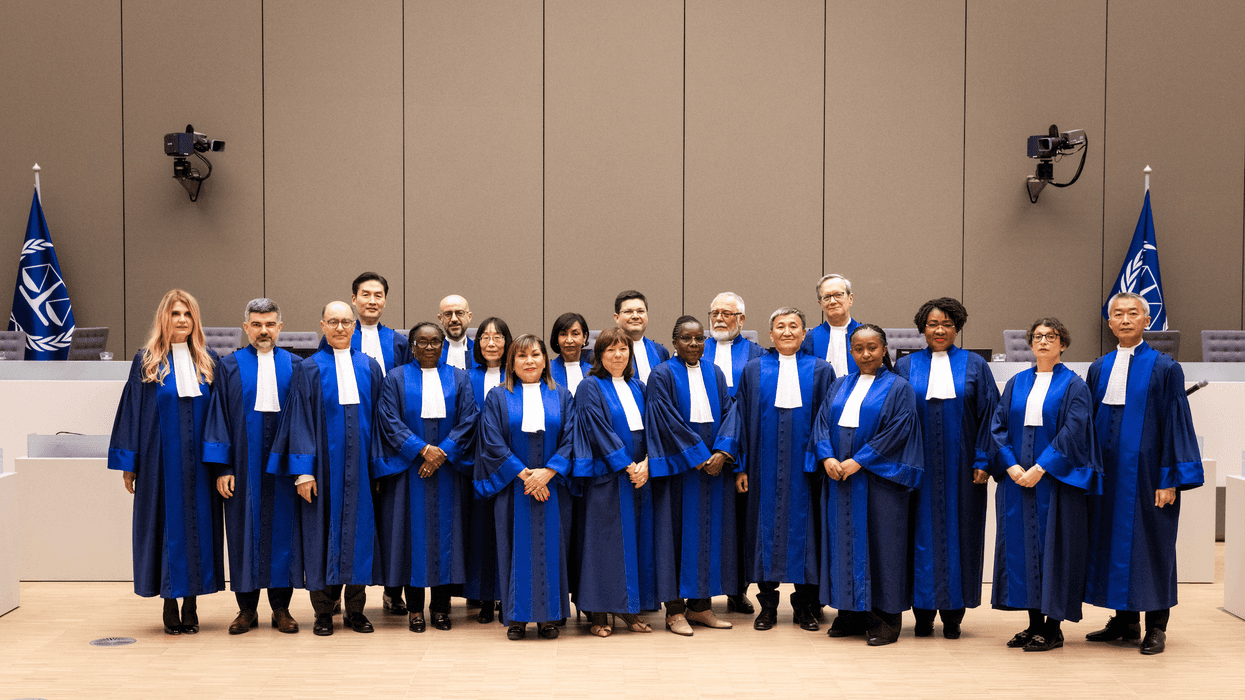Wanted for War Crimes, Netanyahu Skips Signing of 'Board of Peace' Charter at Davos
One UN expert said it shows "why the ICC and the Rome Statute are so important, even if Israel and the US work to undermine it."
Israeli Prime Minister Benjamin Netanyahu is on President Donald Trump's so-called "Board of Peace" for Gaza. But he couldn't attend the ceremony in Davos, Switzerland, on Wednesday because he'd likely be arrested for war crimes if he set foot in the country.
In 2024, the International Criminal Court (ICC) issued arrest warrants for Netanyahu and then-Israeli Defense Minister Yoav Gallant, accusing them of war crimes and crimes against humanity committed during Israel’s genocidal military assault in Gaza.
At least 71,000 Palestinians—the majority of whom were women and children—have been killed by Israeli forces, and at least 169,000 more have been injured during the military campaign, according to official numbers.
Other estimates suggest the real death toll is much higher when taking into account the results of Israel’s crushing blockade of humanitarian aid and its destruction of infrastructure that has made the Gaza Strip virtually unlivable, and which has continued despite a "ceasefire" reached in October.
These deaths are the result of what the ICC said has been a systematic campaign by Netanyahu to use starvation as a method of warfare and enact collective punishment against the strip's civilian population.
Switzerland is one of 125 nations that have ratified the Rome Statute, which established the ICC in 1998 as an international body to prosecute leaders who commit genocide, crimes against humanity, war crimes, and crimes of aggression.
Prior to Davos, the Swiss government stated a firm commitment to arresting Netanyahu if he ever sets foot in its territory.
"As a party to the Rome Statute, Switzerland is obliged to cooperate with the International Criminal Court," the nation's Federal Office of Justice told Haaretz. "Switzerland would in principle be required to arrest accused persons if they were to enter Switzerland at this time, provided that a corresponding arrest warrant or an arrest request based on it had been issued by the ICC, and to initiate the surrender proceedings to the International Criminal Court."
Several other countries, including the Netherlands—where the ICC is based—as well as Spain, Ireland, and Australia, have also said they'd comply with the warrants if Netanyahu were to visit.
While the US and Israel itself have not ratified the statute, many of Israel's other allies—including the United Kingdom, France, and Canada—are also party to the agreement and obligated to arrest Netanyahu, though he has thus far not tested their willingness to do so, and many have not stated clearly whether they'd follow through on the obligation.
The only ICC nation Netanyahu has entered since the warrants were issued is Hungary, whose far-right leader Viktor Orban defied the mandate to arrest him and later withdrew from the ICC.
Meanwhile, the US has placed sanctions on the ICC and its chief justice, Karim Khan, and several judges who participated in issuing the warrants, while threatening to do so against any other entity that cooperates with the court.
Israeli President Isaac Herzog, who appeared at Davos in Netanyahu’s stead on Wednesday, called the ICC’s warrants “illegitimate” and said it was “unacceptable and shameful” for Netanyahu to be excluded from “a conference that aims to shape the future of the world and the Middle East.”
While the ICC's inability to act on its warrants unilaterally has led some to dismiss them as impotent, Beatrice Fihn, a Swedish senior fellow at the United Nations Institute for Disarmament Research, said blocking Netanyahu from events like Davos shows "why the ICC and the Rome Statute are so important, even if Israel and the US work to undermine it."
"The arrest warrant," she said, "is making Netanyahu's work harder."


